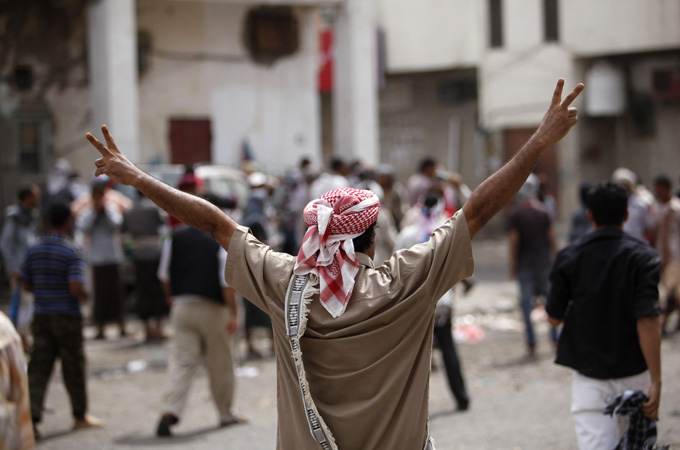By Madeline Schiesser
Impunity Watch Reporter, Europe
MOSCOW, Russia – Last week, Russia’s Constitutional Court, while upholding the constitutionality of law passed in June restricting protest and rally organization, ruled that authorities should not discriminate against rally organizers and participants on the basis of their political views.

The Constitutional Court approved of Russian laws banning individuals with multiple administrative convictions, which include a large number of citizens, from organizing rallies, reasoning that recurring violations “cast[] doubt on the organi[z]ational ability of such individuals and, most importantly, their ability to run a peaceful public event in a manner prescribed by law.”
Members of Parliament from the Other Russia political party had challenged law, which had become Federal Law No. 65-FZ as of June 8, 2012 (see Russia Parliament Approves Peaceful Assembly Fine, Bill Awaits Putin’s Approval). They specifically believed Paragraph A in Part 1, Article 2 to be unconstitutional. This paragraph denied the right to organize rallies, marches and pickets, to those with outstanding convictions for offences against the foundations of the constitutional system and the security of the state, or offences against public safety, or those who have been charged with administrative offences.
Under the law, protest organizers cannot reject alternative routes that authorities propose without good reason, but are entitled to challenge the route decisions in court. This provision was also upheld by the Court.
However, the Court stressed that authorities must apply the law equally with respect to all organizers and participants, regardless of political views. The court stated, “Any response by a public authority to the organi[z]ation and running of meetings, rallies, demonstrations, marches and pickets must, in any case, be neutral, regardless of the political views of the organi[z]ers and participants.”
Nevertheless, the court recognized that even the minimum fines imposed by the rally law are disproportionate to the income of the Russian citizen. Therefore, the Court order the legislator to take measures to lower the current fines. Presently, the maximum fines stand at 300,000 roubles (~ $9,000) for individuals and 600,000 roubles (~ $20,000) for officials.
Even in light of the Court’s ruling, restrictions on meetings, rallies and protest continue to be seen throughout Russia. In St. Petersburg, the city’s local assembly, or City Duma, this week adopted restrictions on public gatherings that will require such gatherings to have official permission and be at least 50 meters from government buildings, schools, hospitals, or police stations.
The adoption comes only a month after the bill was first introduced to the City Duma, when it was first refused in its original form. The Yabloko Democratic Party, A Just Russia Party, Communist Party and even two members of the United Russia and Liberal Democratic Party questioned whether assembly would be possible in light of the bill.
“We’ll be left with nothing more than one-man pickets; you’ll be allowed to stand with a poster, and that’s all,” Alexander Kobrinsky, a Yabloko deputy, said.
Although the law makes special exceptions for lawmakers, religious ceremonies, sporting and cultural events, and for gatherings limited to less than 200 people in in specially designated areas, the ability to protest or demonstrate in a meaningful way and place is greatly curbed by the new law.
Yabloko leader Grigory Yavlinsky has called the law unconstitutional and promised to fight to repeal it.
The LGBT community in St. Petersburg has certainly seen the effects of tight restrictions on public rallies. Under the June 8th law, authorities have the power to require the LGBT demonstrators move to the technical city limits to a tiny village called Novosyolki, after 15 sites the demonstration organizers suggested all were rejected because other events were taking place.
Natalya Tsymbalova, an activist with Democratic St. Petersburg and the Alliance of Straights for LGBT Equality, described the alternative location the city authorities had provided: “There is an aerodrome, a dump and a cemetery there. It looks like they have found the most remote location which is still officially part of the city.”
For further information, please see:
RFE/RL – St. Petersburg Tightly Restricts Public Gatherings – 20 February 2013
St. Petersburg Times – Gay Groups Continue to Fight Unfair Treatment – 20 February 2013
Human Rights in Russia – Constitutional Court Confirms Special Requirements for Rally Organisers – 14 February 2013
RT – Authorities Must Not Politically Discriminate Against Protesters – Constitutional Court – 14 February 2013
St. Petersburg Times – City Duma Rejects Call For Ban on Assemblies – 23 January 2013


